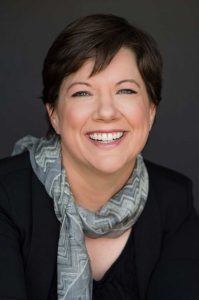 Mary J. Kwasny, ScD ’98
Mary J. Kwasny, ScD ’98
Professor of Preventive Medicine (Biostatistics)
Feinberg School of Medicine
Northwestern University
Where do you currently work and what are your job responsibilities?
I am working in the Biostatistics Collaboration Center at the Feinberg School of Medicine at Northwestern University. I am currently funded on 15 grants with 9 different PIs, and work a little bit on some recharge (consulting) projects. I oversee master’s level statisticians for some of the work, and do some of it on my own.
What do you like most about your current position?
I love the variety of work that I do. Every day is a little different, and I work with really smart and personable investigators on project that range from grant development to manuscript preparation.
Why did you choose to study biostatistics and what led you to Harvard?
I was a mathematics major in college, but I LOVED science fair projects in high school. At the end of my junior year in college, I was looking for fields of study that sounded interesting. I ran across “Biostatistics” in a book on graduate programs in math and sciences. A light bulb went on as I realized that this would be a way to apply all of the mathematics that I just learned to all of those science fair projects. I was hooked, and applied to about 5 different programs. While I am from the Midwest, my undergraduate degree was from the College of the Holy Cross in Worcester, MA. I liked the idea of staying on the east coast, so Harvard it was!
What was the most rewarding part of your degree program?
Clearly, I learned a lot. One of my favorite courses was Discrete Analysis taught by Steve Lagakos, who was a great guy and an excellent teacher. John Orav taught Probability, which was also one of my favorite courses– especially as a math major! Being one of the TAs for Marcello Pagano’s Introduction to Biostatistics course was a great experience, as was doing homework in the computer lab – I loved it when the other students would look for help (complete stepped algorithm: Do you know SAS? Do you know how to run cox regression in SAS? Do you know option for…). Another great memory was from the first JSM I attended as a student. Eight of us (4 women, 4 men) shared 2 rooms – crazy fun!
I still have contact with many of my classmates (+/- 2 years). I meet with some of them regularly at statistical meetings (like JSM), and others I even recently vacationed with. One of my best friends to this day was a classmate with whom I studied to pass the written qualifier (and one of the 4 in the hotel room at JSM). Some of my favorite memories were “after hours” – ooh, we got in trouble for playing cards (hearts and spades) in the cafeteria… the multitude of international restaurant choices in Boston (Ethiopian, Korean BBQ, etc.), and cocktails with students and faculty at Flan O’Brien’s Pub around the corner from the school.
What was the most challenging part of your degree program?
For me, one of the most challenging parts was “finding” a thesis topic. Being straight out of an undergraduate program, I didn’t have the appreciation (or ability) to find statistical issues to “solve.” As an undergraduate, you get a problem, you answer it, and it’s right or wrong based on an answer key. As a graduate student, you are asked to develop methods and need to think outside of the box. I think that was my biggest struggle. Another issue was that I came from a strictly undergraduate institute. We did not have TAs so I wasn’t sure how to “use” them at first. As for coursework, I struggled with a few courses– some things come naturally, and others don’t. It was always helpful to work on a problem for a while, then ask other students, and then ask the TA or professor.
How did your experience at Harvard prepare you for your career?
As an undergraduate I really tended to work alone. At Harvard, I learned how to work as part of a team, and found that there is much to learn and share as part of a successful collaboration.
What advice would you give to current or prospective students?
Take advantage of all of the opportunities that you have at Harvard and in Boston! There are student tickets available for most entertainment options in Boston (Symphony Hall, etc). Don’t be afraid to try new things. Also, take advantage of the Boston Chapter of the ASA. I did not do this, but only got involved in the ASA long after graduation. I missed out on a LOT of opportunities. Look for a mentor! As a student you are assigned an advisor, and then you pick a thesis advisor, but look for someone who can help you outside of your academic path, either in another department or in the ASA. That person can give you advice that is not biased toward success in the program, but success on your terms. This can also be a great first step to networking, which is a vital skill to learn.



